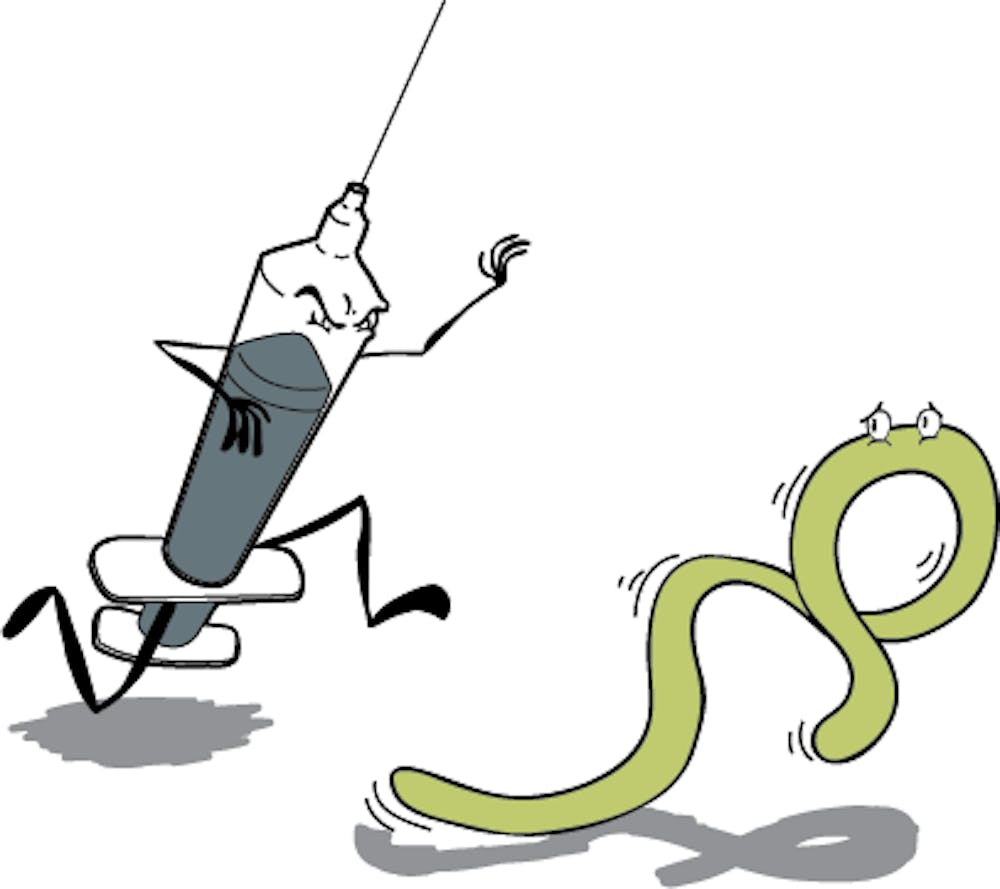A vaccine to combat the Ebola virus might just be on the horizon. Researchers have been working to swiftly create a vaccine in only a matter of months to prevent further infections from the deadly virus, a process that normally takes years.
Recently, trials have been stopped due to complaints of joint pain, but the Indiana Daily Student Editorial Board believes the vaccine is promising.
Trials were run in Maryland by researchers from the National Institutes of Health, involving 20 healthy adults, according to a report from CBS News.
The volunteers, ages ranging from 18 to 50, were split into two groups: one group received a low-dose injection, and the second received a higher dose of the ?vaccine.
After four weeks, all 20 volunteers developed anti-Ebola antibodies, with higher levels found in those who were administered the higher dose.
No serious side effects occurred, though two people who received the higher dosage developed a brief fever the day after ?vaccination.
The vaccine itself does not contain the Ebola virus. Therefore, it cannot cause a person to be infected with Ebola, so everyone can remain calm.
However, let us not overlook the detrimental impact this disease had in West Africa.
Since its widespread outbreak earlier this year, Ebola has caused more than 6,000 deaths.
Guinea, Liberia and Sierra Leone are the most affected countries, with 11,256 cases and 6,373 deaths recorded among them, according to the Centers for Disease Control and Prevention.
While news coverage of the outbreak has been quite extensive and overwhelming at times, it has noticeably slowed down.
With no recent cases in the United States, it has once again become a distant, faraway problem.
The IDS Editorial Board believes that the initial success of the trial will minimize people’s fear of the disease and will create hope that protection is on its way.
We applaud the serious efforts of the scientists and researchers working to produce a vaccine. Still, it is imperative that we remain careful with testing and consider its overall safety.
An Ebola vaccine has the potential to protect the lives of ?thousands.
It could be administered to the health care workers, doctors, nurses and aid workers who are bravely risking their lives in West Africa to treat those already ?infected with the virus.
While the excessive panic and fear of Ebola seen in the United States over the past number of months has subsided, illness and death from the disease is still an unfortunate reality in West Africa. The 2014 Ebola epidemic is the largest in history, according to the Centers for Disease Control and Prevention.
Ebola is not a very contagious disease in that it requires direct contact to go from one person to another, but it is very infectious, because only a few viral particles are needed to produce disease.
Even though the U.S. has no current cases, the likelihood exists that we will see more cases in the future. Ebola deserves our attention but not our fear.



